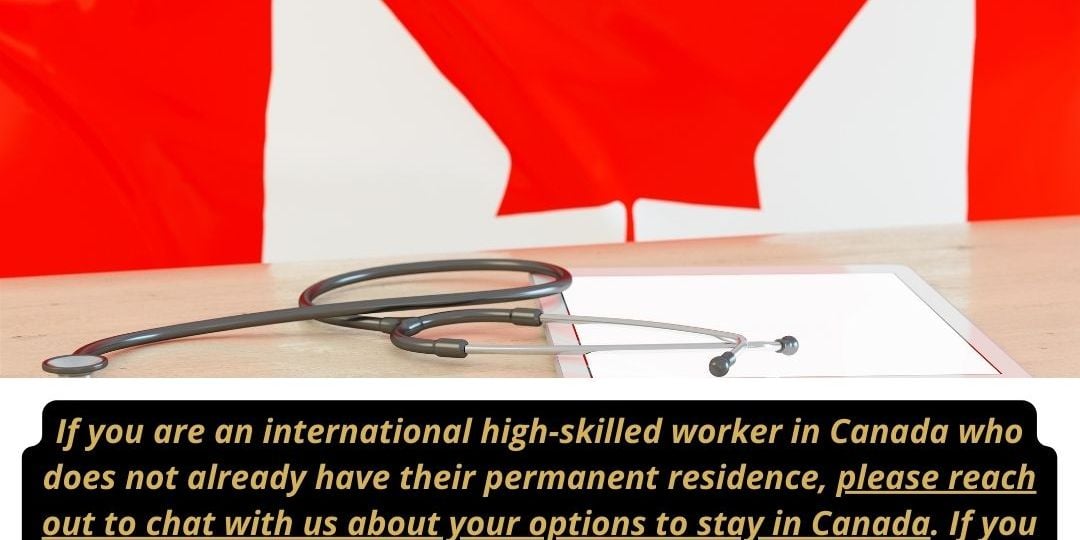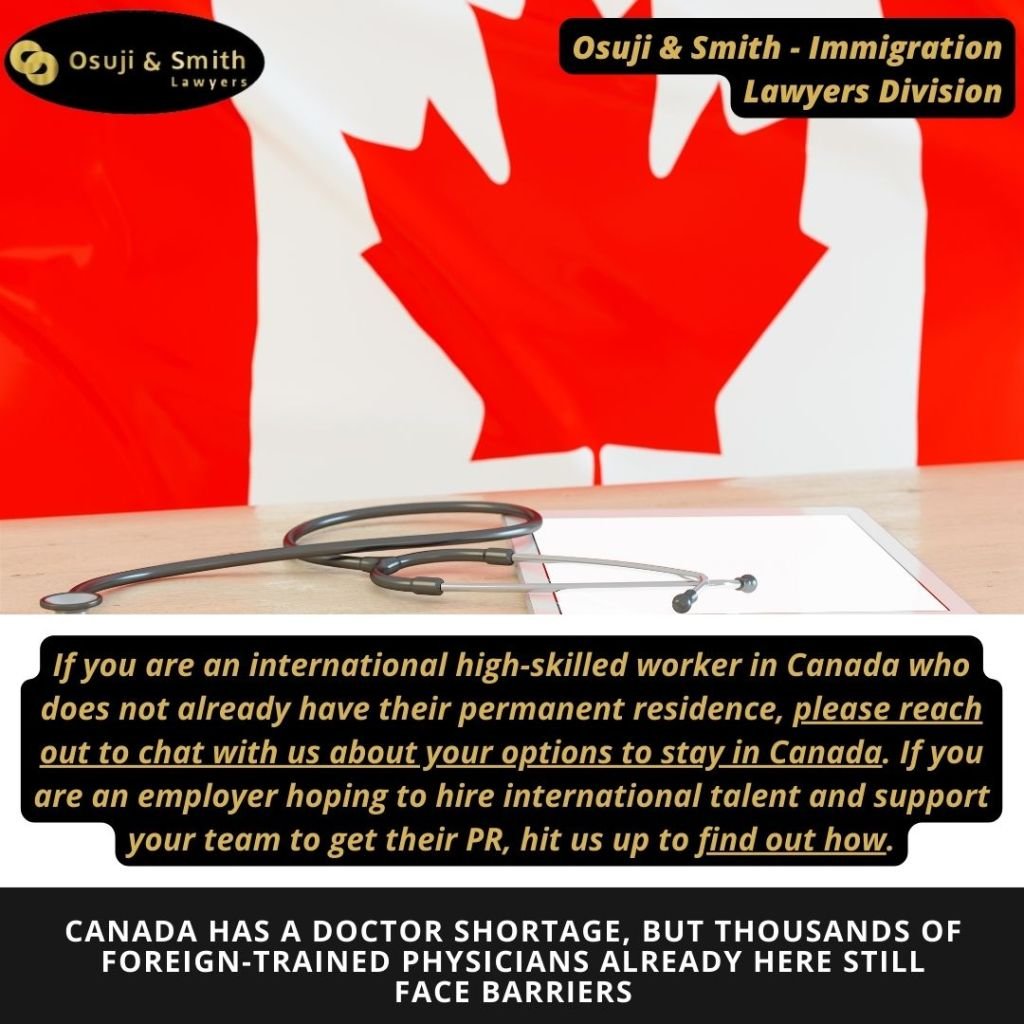
CANADIAN Immigration News Post – Week 2, 2025
Canada has a doctor shortage, but thousands of foreign-trained physicians already here still face barriers
Accreditation is one of the most important remedies for provinces to be able to keep the talent already inside their borders. Thousands and thousands of internationally qualified professionals and skilled workers are stocking shelves in grocery stores, driving taxis, and delivering pizza in Canada.
From healthcare providers to construction experts, every Canadian province has a deficit of one kind of another that could be filled by people already working and living in Canada.
It is essential for each and every one of us that the colleges and organizations responsible for accreditation work with provincial governments to devise new and faster ways to get the much-needed first-rate high skilled workers to work in their fields of expertise.
If you are an international high-skilled worker in Canada who does not already have their permanent residence, please reach out to chat with us about your options to stay in Canada. If you are an employer hoping to hire international talent and support your team to get their PR, hit us up to find out how.

Internationally trained physicians face significant challenges when seeking to practice medicine in Canada. Despite the country’s need for more healthcare professionals, the licensing process for International Medical Graduates (IMGs) remains complex and demanding.
Licensing Requirements for IMGs in Canada
To obtain full licensure in Canada, IMGs must fulfill several criteria:
- Medical Degree: Possess a degree from a medical school listed in the World Directory of Medical Schools with a Canada Sponsor Note, or hold a Doctor of Osteopathic Medicine degree from a U.S. school accredited by the American Association of Colleges of Osteopathic Medicine.
- Licentiate of the Medical Council of Canada (LMCC): Achieve this designation by passing the Medical Council of Canada Qualifying Examination (MCCQE) Part I and Part II.
- Postgraduate Training: Complete a recognized postgraduate training program in allopathic medicine and undergo evaluation by an authorized body. Entry into a residency program requires passing the National Assessment Collaboration Examination.
- Certification: Obtain certification from the College of Family Physicians of Canada, the Royal College of Physicians and Surgeons of Canada, or the Collège des médecins du Québec.
Some provinces offer alternative pathways to licensure. For instance, British Columbia has specific provisions, and Alberta, along with six other provinces, implements the Practice Ready Assessment (PRA) program. This initiative allows eligible IMGs to begin supervised practice, eventually leading to independent practice upon meeting certain conditions.
Challenges Faced by IMGs
Despite these pathways, IMGs often encounter hurdles:
- Residency Placement: Securing a residency position is highly competitive. Statistics indicate that only about 10% of IMG applicants successfully obtain a residency spot in Canada. Wikipedia
- Regulatory Barriers: Critics argue that organizations like the Canadian Medical Association and provincial regulatory bodies impose excessive bureaucratic procedures, hindering qualified international doctors from practicing. Wikipedia
- Underemployment: Many internationally trained doctors in Canada find themselves in low-wage jobs unrelated to their medical expertise due to licensing challenges. Wikipedia
Implications for Healthcare in Canada
The stringent licensing process for IMGs has broader implications:
- Physician Shortage: Canada’s healthcare system faces a physician shortage, exacerbated by the underutilization of internationally trained doctors. Wikipedia
- Access to Care: The shortage of licensed physicians affects all sectors of healthcare, leaving many patients without family doctors and specialists, which hampers early intervention and treatment. Wikipedia
Addressing these challenges is crucial for integrating skilled international physicians into Canada’s healthcare system, ultimately improving access to medical care for Canadians.
Contact Osuji & Smith Lawyers – Immigration Division to chat with us about your options to stay in Canada

